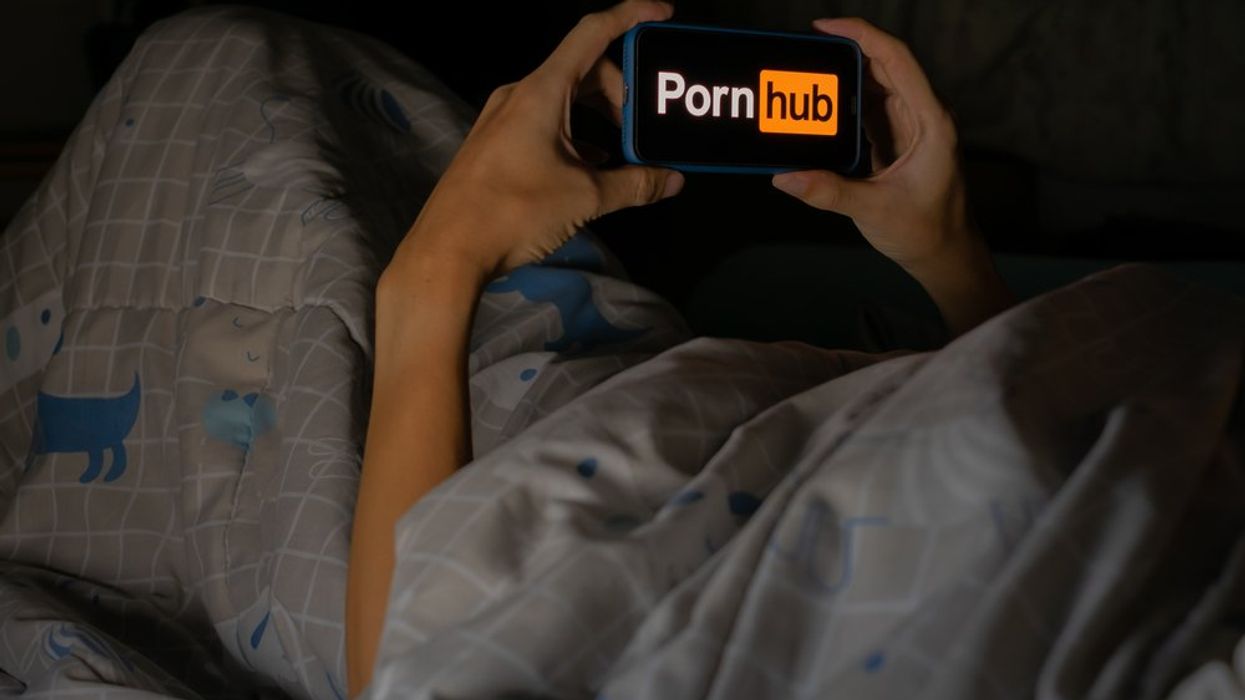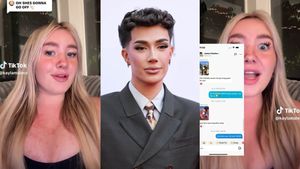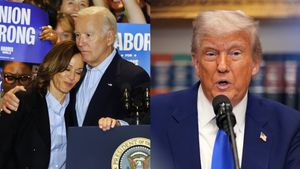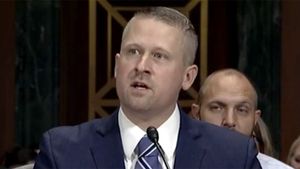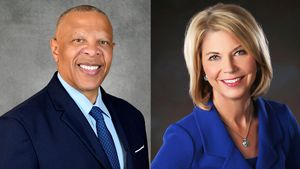Originally published by The 19th. Written by Jasmine Mithani
On a Friday afternoon last June, Virginia state Sen. Louise Lucas posted a strange question on her official X account: “Is anyone else’s Pornhub not working?”
Lucas, a Democrat, went on to clarify that she had voted to pass a bill “to protect children from online porn” but was frustrated with the consequences of its implementation — citing privacy concerns, PornHub blocked Virginians from accessing its site rather than comply with the age verification mandate.
Virginia is an early adapter in trying this type of regulation. In 2022, Louisiana became the first state to introduce and pass a law requiring websites that host adult content to verify that users are over 18 years old. Last year, six more states, including Virginia, passed similar laws, in some cases directly copying the language used in the Louisiana bill. According to the Free Speech Coalition, the adult industry’s trade association, at least 14 states have introduced or pre-filed age verification laws for 2024. Many are on track to be passed imminently.
Technology has made adult content more accessible than ever.
Age verification laws are the “latest strategy in a long battle” against pornography, said Kelsy Burke, professor of sociology at University of Nebraska at Lincoln and author of “The Pornography Wars: The Past, Present, and Future of America’s Obscene Obsession.”
“Over the past couple hundred years, conservatives have used various arguments to talk about why porn is bad for us,” Burke said. “Conservatives think they can gain some traction with broader publics by saying that kids are accessing porn, and that's why we need to stop them.”
There is widespread consensus among politicians, parents, sex workers, the Supreme Court, and the general population that minors should not be allowed to engage with explicit content.
“One of the things that's important to point out is that it is already illegal to distribute sexual material to minors,” Burke said. “So in some ways, these age verification laws are attempting to provide a mechanism to enforce laws that are already out there.”
How is access to adult content restricted now?
There are several ways adult content is restricted on the internet, but they are imperfect. Some adult sites ask users to affirm they are over 18 via a pop-up, but the self-reported information is never confirmed. Search engines and devices have content filtering enabled for adult websites, but device-level restrictions are not enabled by default.
The current tools require parents to be involved decision makers in the kind of content their kids are able to view, said Burke.
If parents don’t do that, then the tools remain ineffective. Content filters and device settings also require a certain level of technical ability to set — and often kids can be more technologically fluent than their parents.
What do age verification laws do?
These laws essentially say that if websites host a substantial amount of “material harmful to minors” — broadly speaking, sexual content — they must verify the age of users accessing the site. Sites can be liable if they do not implement age verification methods approved by the state.
The laws say age verification must be performed by checking government-issued identification, or using an analogous high-accuracy method. In Louisiana, the first state to pass an age verification law, this meant that for residents to access PornHub, they needed to authenticate their age via the state’s digital driver’s license app.
The laws also empower civilians to sue website owners for damages if a minor is exposed to objectionable material through their platform.
Why are lawmakers pushing for age verification?
“As long as there has been popular media, there have been fears about the inability of adults to contain the knowledge that young people are exposed to. We can honestly trace these sorts of fears back as long as there's been mass culture, if not before that,” said Gillian Frank, a lecturer at Stevens Institute of Technology and host of the “Sexing History” podcast.
Proponents of these laws often rely on narratives and shaky evidence that exposure to pornography has devastating results on individuals. The Louisiana law cites resolutions passed in 2017 and 2019 that declare pornography a public health crisis, including an extensive list of alleged harms. These laws often focus on the dangers of porn addiction and sex addiction, which are not listed in America’s Diagnostic and Statistical Manual of Mental Disorders or World Health Organization’s International Classification of Diseases (ICD), said Burke, though compulsive sexual behavior does fall under the criteria for an impulse disorder in the ICD.
Objections to pornography often have a basis in religion, particularly evangelical Christianity.
“Religious conservatives, like evangelicals, use addiction language because it sounds more morally neutral,” Burke said. “So that can have a broader appeal by talking about the sort of health or scientific harms that come from using pornography, that it's not just simply having to do with morality or the sinfulness of looking at porn."
Burke said she thinks the claims about the health risks of pornography are generally overstated.
Why are age verification laws being criticized?
The laws have gotten pushback from tech companies and free speech advocates who view them as a way to unfairly restrict or shame adults. Critics say there are less burdensome approaches the government should explore before resorting to checking digital IDs.
Privacy concerns are also top of mind, as many people are reluctant to share their government IDs online, especially when it is tied to looking at pornography. The laws stipulate that third-party age verification services must not retain any identifying information about individuals, but there is no enforcement mechanism to ensure that. Data leaks are not uncommon, and the possibility — however unlikely — that compromising information could be at risk of release has turned many consumers off: PornHub announced that after implementing age verification in Louisiana, traffic to the site dropped 80 percent.
Many states are copying Louisiana’s law wholesale but not making adjustments for the technology available. Louisiana residents have had access to the LA Wallet phone app, a third-party application that stores a digital copy of drivers licenses that are functionally equivalent to identification cards, since 2018. The state’s mandate for age verification easily integrated with LA Wallet, but many states passing copycat laws don’t have that technical infrastructure in place.
PornHub has simply blocked access to its site in the other eight states where age verification laws are in effect, citing privacy concerns.
Some forms of technology used to verify age, such as facial recognition, raise alarm bells for privacy advocates and are prone to error. Few states have strong protections for how biometric data should be stored and used.
Laws curbing explicit content never stay specific to their original bounds, Frank said. The language defining obscenity is always up to interpretation.
“Historically, they've been used in an expansive way to deem all sorts of benign consenting adult acts as obscene and inadmissible in the public sphere,” Frank said. “Historically, queer people were deemed as pornographic. Any sort of same-sex sexual expression, whether it was in a novel or in a gay magazine, until the mid-twentieth century could be seen as pornographic and obscene and therefore, could not be disseminated.”
Those working to pass these laws are not just worried about porn, Burke said — they’re also “concerned with all sorts of legal recognition and rights for LGBTQ people, legal recognition and rights for sex workers, broadly.”
“This is an overlapping nexus of concerns that stem from a conservative Protestant worldview that is attempting to push itself on to America as a whole,” Burke said. Codifying these views about gender and sexuality have broad implications beyond pornography, and affect anyone who doesn’t fit into those narrow sex or gender norms, she said.
What qualifies as “material harmful to minors”?
The Louisiana law uses both the legal definition of obscenity and a specific list of potential material in its definition of “material harmful to minors.” By using the language of obscenity, these laws target sexual imagery versus, for example, general images of violence. Louisiana’s language has been copied in other states.
The definition comes from a landmark 1973 Supreme Court decision, which itself revised earlier language from 1957, to say material harmful to minors is “Any material that the average person, applying contemporary community standards would find, taking the material as a whole and with respect to minors, is designed to appeal to, or is designed to pander to, the prurient interest.” Further, the material in question must lack “serious literary, artistic, political, or scientific value for minors.”
The bill also prohibits descriptions, animations or depictions of a host of specific body parts and sexual activities. The list includes pubic hair, the “nipple of the female breast” and sexual flagellation.
Which websites do age verification laws apply to?
The commonly accepted threshold defined in these laws is that if 33.33 percent of a website’s material is “harmful to minors,” then it must implement age verification. There are exceptions for search engines, cloud storage platforms and journalism.
It’s unclear how the one-third rule would be measured.
It is immediately clear that the laws apply to sites that are devoted to pornography, where nearly all material would fall under the bills’ definition of “material harmful to minors,” but many other sites don’t readily know the share of adult content they host — or are now disinclined to make the percentage public. Adult content flourishes on social media, but so far no one has taken action against those platforms based on these laws.
Have age verification laws faced any legal challenges?
Lawsuits were filed by the Free Speech Coalition and other plaintiffs last year against age verification mandates in Texas, Utah and Louisiana on the grounds that they violate First Amendment rights. The Texas law was briefly blocked, but now all three laws are in effect while they make their way through the courts.
How have these laws changed as more states have adopted them?
When Louisiana’s law first went into effect on January 1, 2023, only civilians were allowed to sue on behalf of minors for damages. Another law, effective August 1, 2023, empowered the state attorney general to proactively investigate websites to see if they are compliant with the age verification mandate.
That law says publishers or distributors that do not have age verification implemented are subject to fines of up to $5,000 per day that they are found to be out of compliance. They also could be fined up to $10,000 per violation if commercial entities are found to have “knowingly failed” to provide adequate age verification.
This trend of enforcing civil fines has spread to bills introduced in other states like Indiana and Tennessee.
Most laws are framed around damages and civil liability, but more recent bills, such as ones introduced in Indiana, Tennessee and Illinois, also include criminal liability for distributors. So far, no criminal charges have been included in enacted laws.
Indiana’s original bill draft included the possibilities of misdemeanor or felony charges for operators of adult sites that do not comply with age verification measures, but that has since been amended.
How many civil cases have been brought because of these laws?
None of the experts The 19th spoke with for this article were aware of any cases brought forth under these laws.
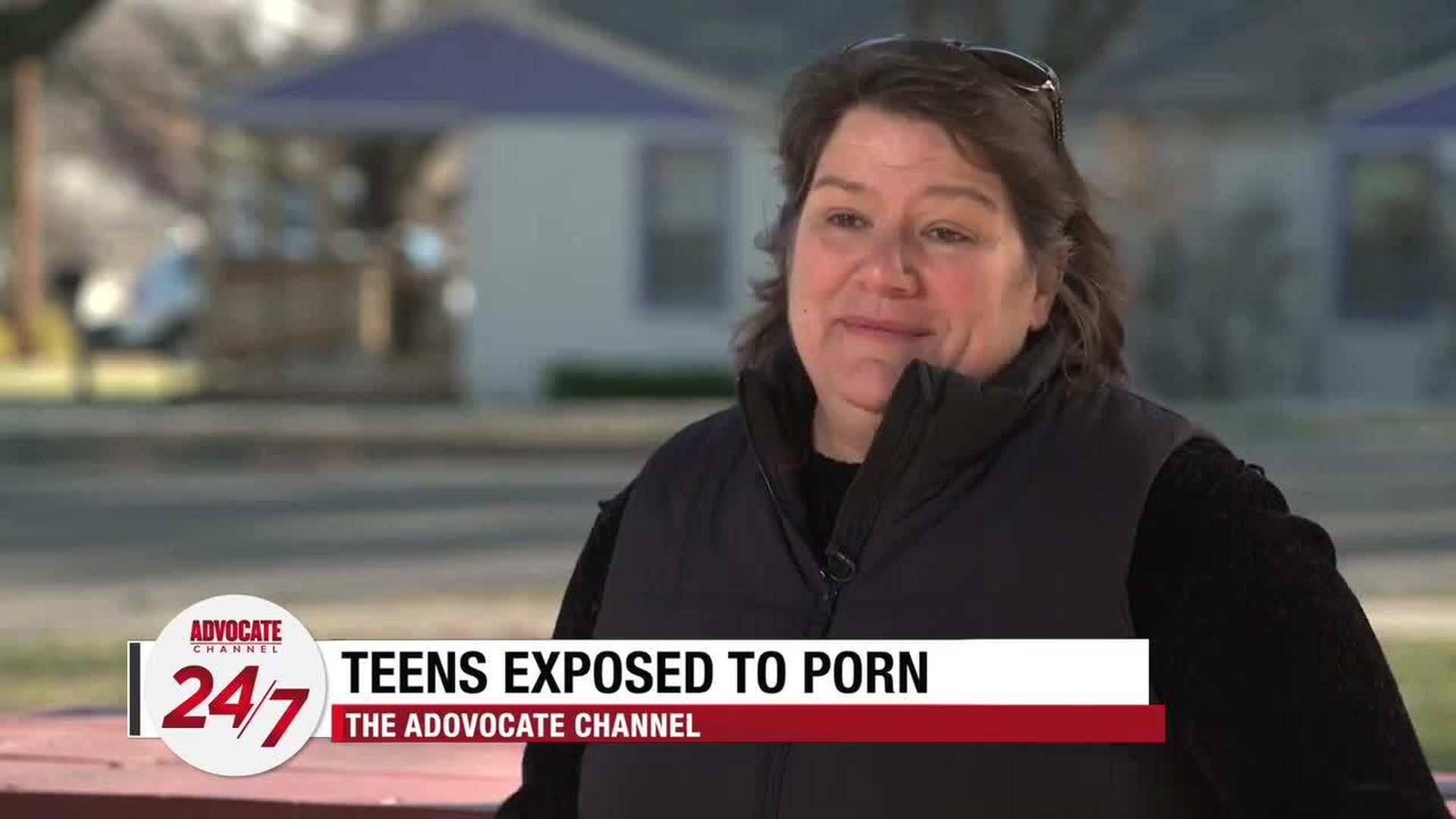
Video Source: Advocate Channel
